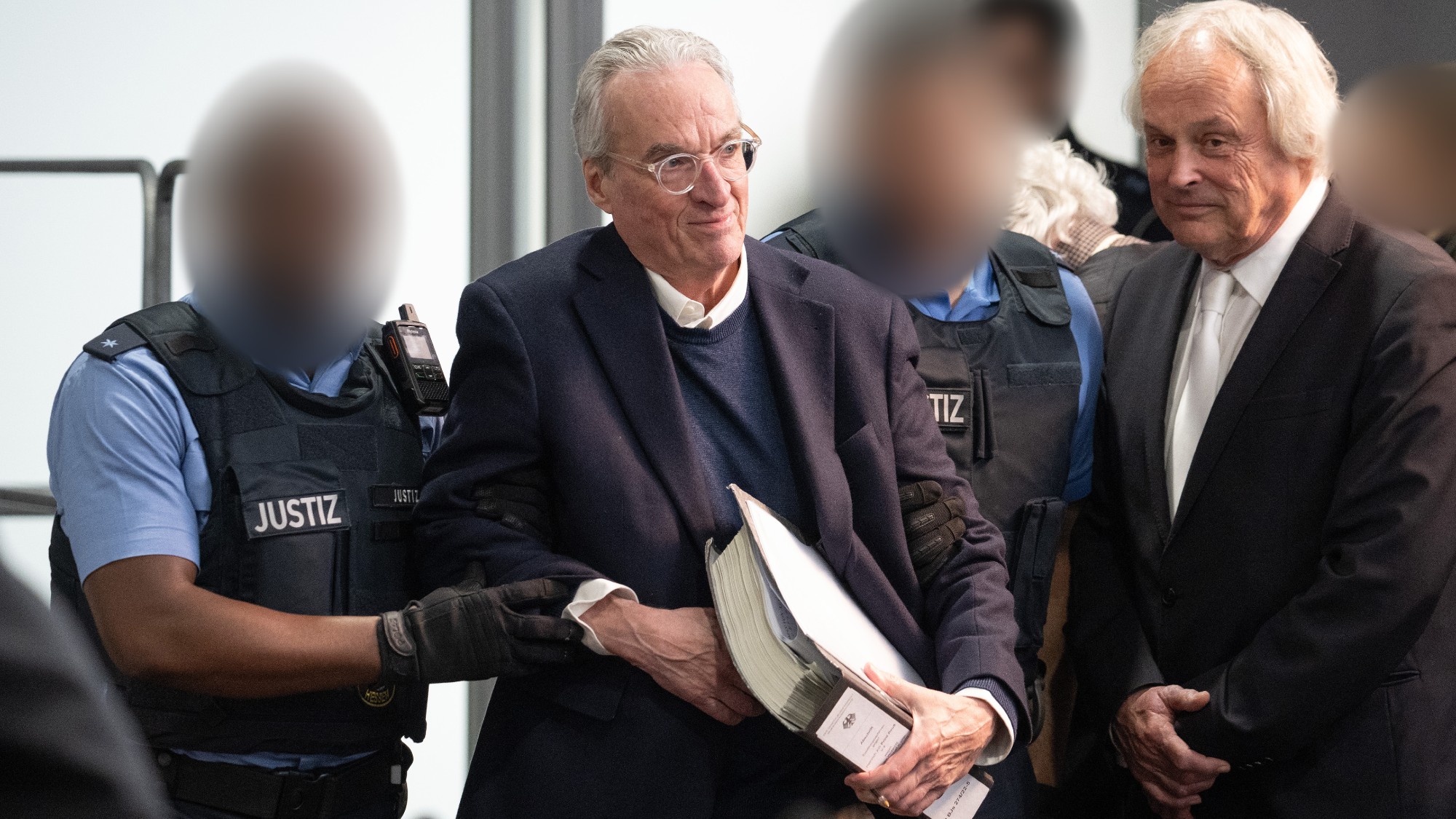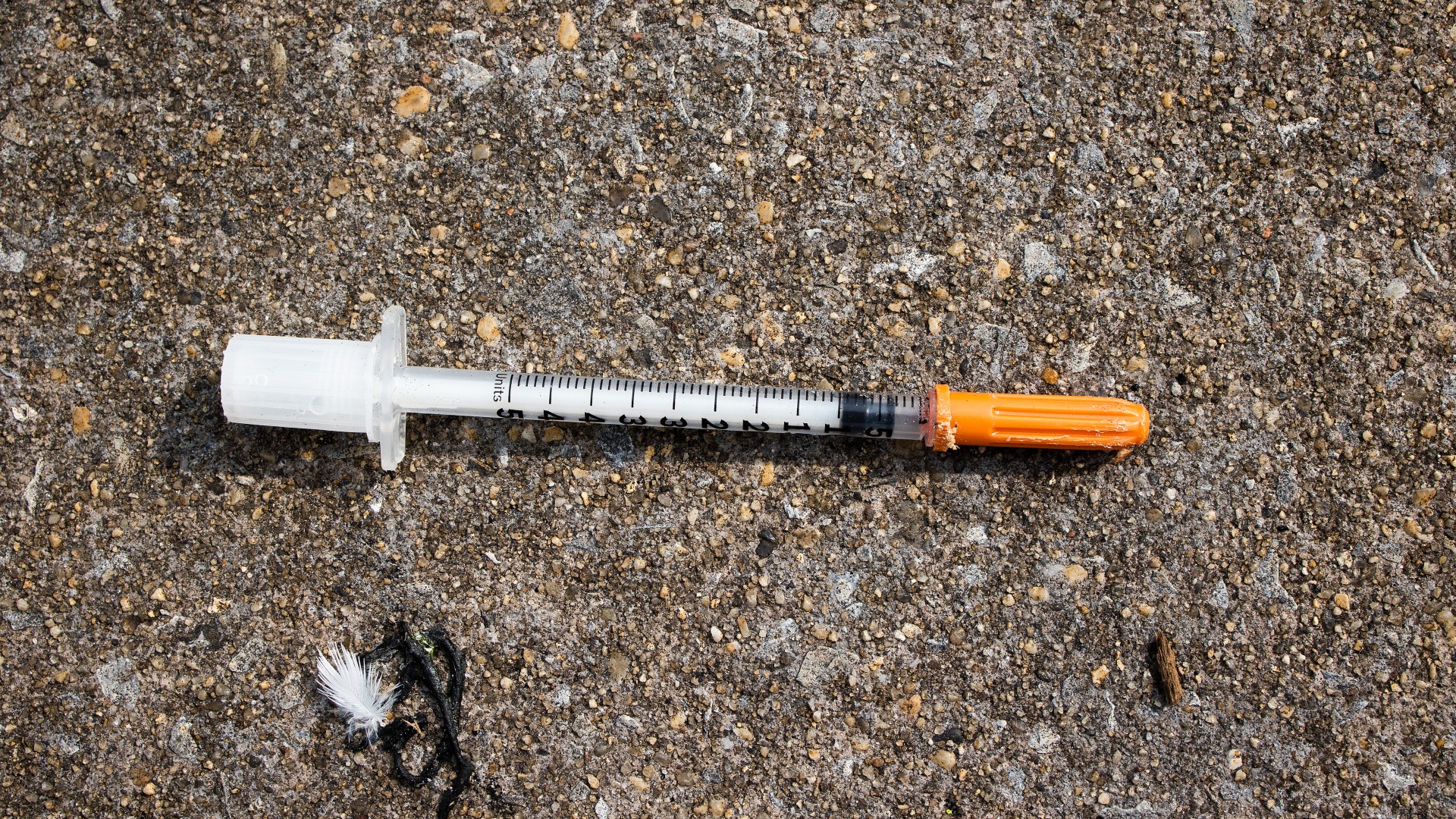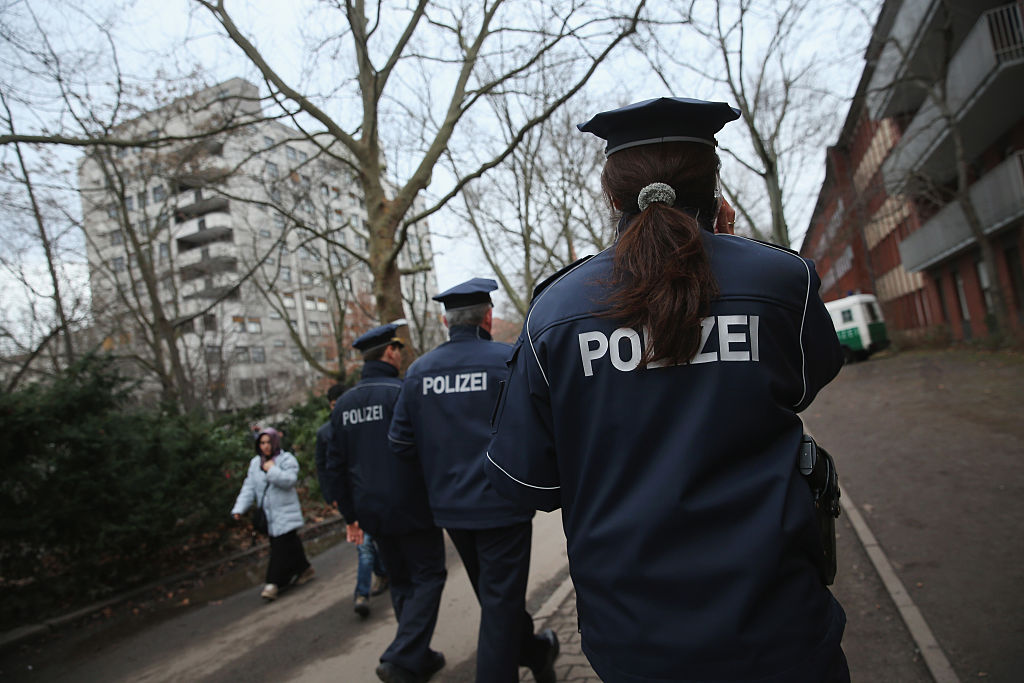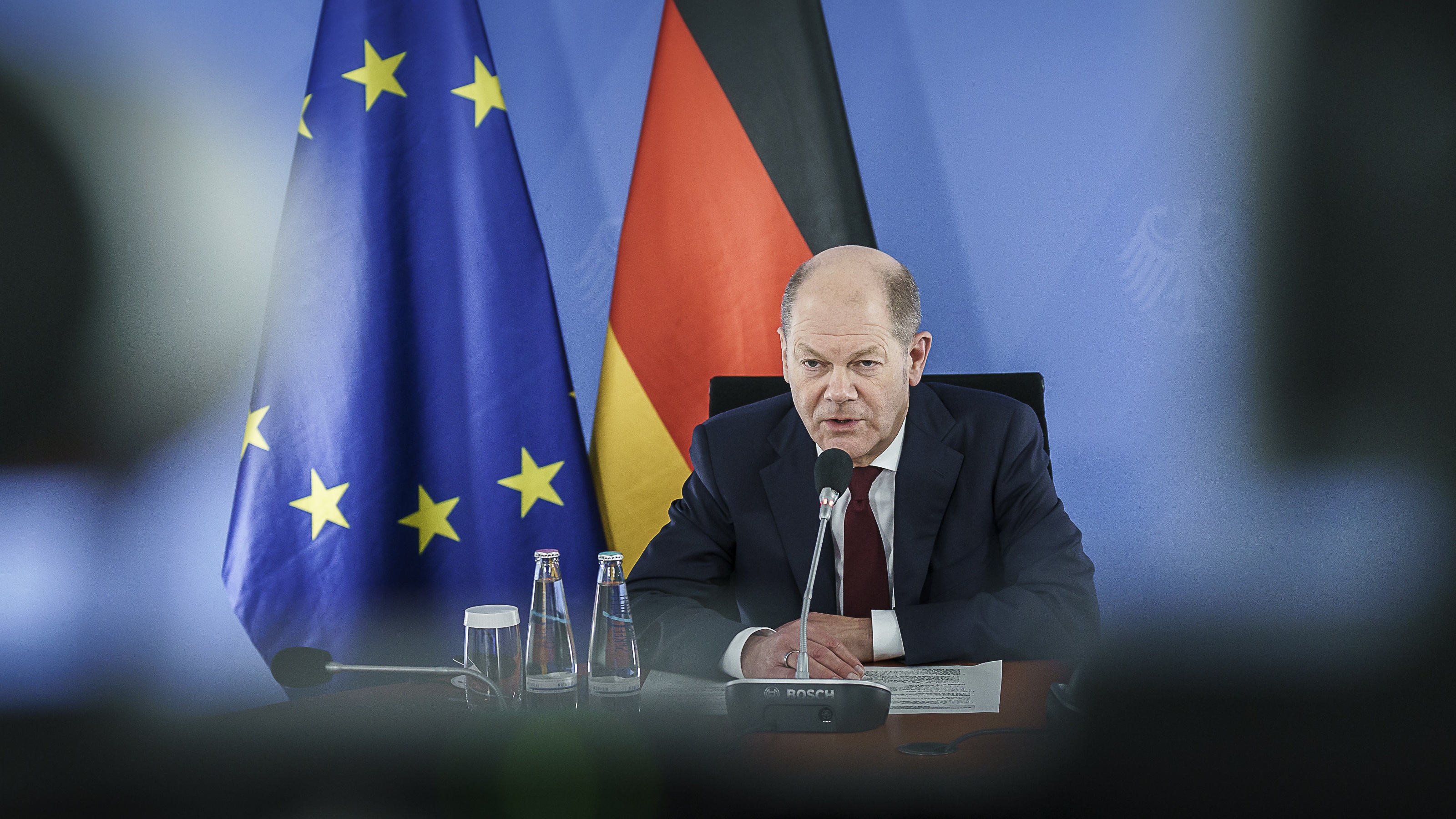Senior detective argues Madeleine McCann investigation was flawed from the start
An ex-detective who worked on the investigation explains why the search was doomed to failure

A free daily email with the biggest news stories of the day – and the best features from TheWeek.com
You are now subscribed
Your newsletter sign-up was successful
Dr Graham Hill, visiting research fellow at the school of law at the University of Leeds and former senior police officer, on the failings of the Madeleine McCann investigation.
News that a 43-year-old German man is now the prime suspect in the Madeleine McCann case appears – at last – to be a significant development.
The information from the German authorities and the Metropolitan Police Service indicates that in May 2007 this man was living and frequenting Praia da Luz, Portugal, and possibly committing burglaries at holiday complexes to fund his itinerant lifestyle. It also appears that as a teenager he was convicted of sexual offences against children in Germany and was therefore a known convicted sex offender in 2007.
The Week
Escape your echo chamber. Get the facts behind the news, plus analysis from multiple perspectives.

Sign up for The Week's Free Newsletters
From our morning news briefing to a weekly Good News Newsletter, get the best of The Week delivered directly to your inbox.
From our morning news briefing to a weekly Good News Newsletter, get the best of The Week delivered directly to your inbox.
This raises several questions: was he known to the Portuguese investigation team at the time? If so, when did his name enter their system and what did they do to implicate or eliminate him from their enquiry? When was his name passed on to the UK investigation team? These are questions at the forefront of my mind as I think back to my time in Portugal.
Madeleine McCann had been missing for several days when I arrived in Praia da Luz in May 2007. I had been sent to Portugal as part of the UK’s Child Exploitation Online Protection Centre (CEOP) response to Madeleine’s disappearance. I was a detective superintendent and senior investigating officer (SIO) with knowledge about predatory child sexual abusers and non-familial child abduction.
After being briefed at the British Consulate regarding Madeleine’s disappearance, I met with Gerry and Kate McCann at their holiday apartment and we discussed the Portuguese police investigation strategy and possible scenarios that could have led to their daughter’s disappearance. Understandably, the McCanns were trying to come to terms with the situation they found themselves in.
During our discussion, Gerry asked me directly if I thought his daughter was still alive, and I pointed out that if she had been abducted – statistically – she would by now be dead. The majority of children who are murdered after being abducted by someone unknown to them are dead within three to six hours. It was a difficult conversation, but I was struck by how focused the McCanns remained throughout.
A free daily email with the biggest news stories of the day – and the best features from TheWeek.com
The following day I went to the police station in Praia da Luz and spoke with several of the lead Portuguese investigators. They were all very polite but it was clear from their attitude and response that they didn’t welcome what they considered to be UK interference in a Portuguese crime.
At that time, they were also receiving advice from Leicestershire Police (the McCanns’ home police force) supported by the then UK National Police Improvement Agency (NPIA).
From the outset I was struck by the lack of urgency surrounding the investigation and it was difficult to establish any detailed information around what direction the investigation was taking. Over the next few days, whenever I suggested certain courses of action that they might wish to consider, the Portuguese police either dismissed it out of hand or I was informed that it had already been done without result.
Flawed investigation
As the days went by, I became more and more frustrated and I relayed this back to CEOP in my telephone conversations and daily written reports. After ten exasperating days avoiding the growing media presence, trying to get and impart information and having meetings cancelled at the last minute because investigators were too busy, it was still unclear to me whether many of the key investigative tasks had been adequately completed.
For example, I had serious misgivings about the quality of the search strategy, the recording of full-time and casual staff at the holiday complex, identification of all known suspected and convicted sex offenders living or frequenting the area, and other significant or relevant crimes in the local area.
My professional opinion was that the Portuguese investigative approach to Madeleine’s disappearance was flawed and not fit for purpose when set against what we would have been done in a similar investigation in the UK. This was reflected time and time again in my verbal and written reports and the “fiasco” was regularly reported on in the press.
Disappointingly, as the investigation progressed there was also a certain amount of inter-agency rivalry between the UK agencies involved, which resulted in a fraught working relationship.
–––––––––––––––––––––––––––––––For a round-up of the most important stories from around the world - and a concise, refreshing and balanced take on the week’s news agenda - try The Week magazine. Start your trial subscription today –––––––––––––––––––––––––––––––
‘Golden hours’ wasted
In the years since Madeleine’s disappearance, I have also raised my concerns as to whether agencies across Europe are still any better prepared for these types of investigations.
When an investigation team doesn’t gather information or act in a timely and systematic fashion, the investigation gets away from them and this dramatically reduces the chances of the crime being solved.
My experience then, and even more so now having studied the behaviour of non-familial child abductors and murderers in-depth as a criminologist, is that the first 24 to 48 hours of a child abduction investigation – often referred to as the “golden hours” – are critical to its successful outcome. It requires strong, dynamic leadership supported by clear defensible decision making.
This must be backed up by systems and structures designed to collect and evaluate information quickly. At the same time, information must be retained in a manner so that it can be revisited at appropriate times as the investigation moves forward and alternative lines of enquiry are considered.
Non-familial child abduction attracts vast amounts of media attention. High-profile cases often attract national media coverage and cases where the child is murdered become, what is called in criminology, “mega-homicides”. These cases can attract worldwide attention and generate vast amounts of information.
The potential for this information to overwhelm even the best-prepared investigation agency during the early hours or days of an inquiry is considerable. For this reason, there is a need for a systematic approach to core policing functions to deal with the complexity. And it is vital to have a thorough, well documented investigation strategy.
These investigations also require highly skilled and experienced investigators who have the ability to make defensible decisions based upon reliable information and create investigative strategy and policy that can stand the test of hindsight. A failure to do so can have serious consequences.
Three years after Madeleine’s disappearance, in 2010, I conducted and wrote CEOP’s internal review of the Portuguese investigation, which was subsequently passed to the Home Office. The review contained observations and recommendations that, after repeated requests from the McCanns, led to the Met being tasked to establish their own investigation, Operation Grange.
The information timeline, when fully known, may offer clarity and explanations to many of the questions that have been swirling around this case since 2007. But these explanations may also raise more uncomfortable questions about the effectiveness of the initial police inquiry and the competence of the people who led it. I only hope this new information leads to some form of closure for the McCanns.
Dr Graham Hill, visiting research fellow at the School of Law, University of Leeds.
This article is republished from The Conversation under a Creative Commons license. Read the original article.
-
 Political cartoons for February 12
Political cartoons for February 12Cartoons Thursday's political cartoons include a Pam Bondi performance, Ghislaine Maxwell on tour, and ICE detention facilities
-
 Arcadia: Tom Stoppard’s ‘masterpiece’ makes a ‘triumphant’ return
Arcadia: Tom Stoppard’s ‘masterpiece’ makes a ‘triumphant’ returnThe Week Recommends Carrie Cracknell’s revival at the Old Vic ‘grips like a thriller’
-
 My Father’s Shadow: a ‘magically nimble’ film
My Father’s Shadow: a ‘magically nimble’ filmThe Week Recommends Akinola Davies Jr’s touching and ‘tender’ tale of two brothers in 1990s Nigeria
-
 Christian Brückner: why prime suspect in Madeleine McCann case can refuse Met interview
Christian Brückner: why prime suspect in Madeleine McCann case can refuse Met interviewThe Explainer International letter of request rejected by 49-year-old convicted rapist as he prepares to walk free
-
 Germany's trial of the century: the plot to topple Scholz
Germany's trial of the century: the plot to topple ScholzIn the Spotlight Elderly aristocrat Heinrich XIII Prince Reuss makes an incongruous terrorist, but prosecutors will argue Reichsbürger coup plan was deadly serious
-
 The Red Army Faction: German fugitive arrested after decades on run
The Red Army Faction: German fugitive arrested after decades on runIn the Spotlight Police reward and TV appeal leads to capture of Daniela Klette, now 65
-
 Does decriminalising drugs really work?
Does decriminalising drugs really work?Today's Big Question Oregon experiment labelled a 'disaster' but advocates say time is needed to embed reforms after 50 years of the war on drugs
-
 Madeleine McCann: what police are looking for in latest Portuguese search
Madeleine McCann: what police are looking for in latest Portuguese searchUnder the Radar The long-running investigation, which began in 2007, has turned up a ‘relevant clue’
-
 German police say suspect killed lookalike so she could fake her own death
German police say suspect killed lookalike so she could fake her own deathSpeed Read
-
 Why Germany is under attack over Russia-Ukraine stand-off
Why Germany is under attack over Russia-Ukraine stand-offIn Depth Mayor of Kiev accuses Berlin of ‘betrayal’ for refusing to back arms exports
-
 Reaction: German police reveal ‘sordid’ crimes of new Madeleine McCann suspect
Reaction: German police reveal ‘sordid’ crimes of new Madeleine McCann suspectIn Depth Convicted paedophile Christian Brücker named in police investigation